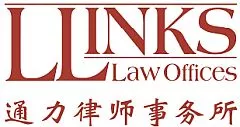- within Corporate/Commercial Law topic(s)
- with Senior Company Executives, HR and Finance and Tax Executives
- in United Kingdom
- with readers working within the Metals & Mining industries
Spotlight on News
1. The Supreme People's Court released the Interpretation on Several Issues Concerning the Application of the Company Law of the People's Republic of China (Draft for Comments).
2. Shanghai amended the Shanghai Municipal Regulations on the Protection of the Rights and Interests of the Elderly, launching paid caregiving leave for employees with a maximum of seven days-off per year.
3. The National Healthcare Security Administration successively released the second batch of 11 typical cases of individuals defrauding healthcare insurance funds, and the first batch of 5 typical cases of defrauding maternity insurance funds. .
Legislation Updates
1. The Cyberspace Administration of China and the State Administration for Market Regulation jointly issued the Personal Information Outbound Certification Measures.
2. The Supreme People's Court issued the Provisions on the Jurisdiction of Internet Courts, adding four categories of cases under centralized jurisdiction of internet courts.
Case Study
1. Guangzhou Intermediate People's Court Released Typical Cases of Labor Disputes: Conditional salary cuts are legally binding, employers should pay back the salary difference for corresponding period.
2. Shenzhen Intermediate People's Court: Employer are subjected to damages for unlawfully extended probation period and severance payment for wrongful termination.
3. Beijing Third Intermediate People's Court: Female employees are entitled for both subsidy and salary for early return from maternity leave.
Spotlight on News
1. The Supreme People's Court released the Interpretation on Several Issues Concerning the Application of the Company Law of the People's Republic of China (Draft for Comments).
To ensure accurate understanding and application of the Company Law of the People's Republic of China and to unify adjudication standards, the Supreme People's Court, based on preliminary in-depth research and initial consultations with experts, scholars, and relevant departments, has drafted the Interpretation of the Supreme People's Court on Several Issues Concerning the Application of the Company Law of the People's Republic of China (Draft for Comments) (hereinafter referred to as the "Draft for Comments") and released it on September 30, 2025, to solicit broad feedback from all sectors of society. The deadline for submitting comments is October 20, 2025.
Compared with previous judicial interpretations, the Draft for Comments shows a significant increase in the number of provisions. The existing five judicial interpretations of the Company Law comprise a total of 91 articles, while the Draft for Comments alone contains 90 articles. This reflects the growing complexity of issues arising in judicial practice as the market economy becomes more dynamic. Focusing on key issues and gray areas in the current field of company law, the Draft for Comments incorporates consensus views from non-normative judicial documents such as the Minutes of the National Courts' Civil and Commercial Trial Work Conference into judicial interpretations, transforming them into adjudication rules with universal applicability. It proposes a series of groundbreaking provisions, including but not limited to mechanisms for the resignation and removal of legal representatives, the system for disregarding corporate personality, the determination of property independence in one-person companies, the acceleration of shareholders' capital contributions, scenarios where shareholding trust agreements are deemed invalid, and the validity of valuation adjustment mechanisms. These provisions demonstrate the legal system's effective response to practical challenges.
Currently, the solicitation of comments on the Draft for Comments has concluded, and it is pending further revision and refinement before official release. The new judicial interpretation of the Company Law will better support the sustained development of the market economy and provide a solid legal foundation for optimizing the business environment.
2. Shanghai amended the Shanghai Municipal Regulations on the Protection of the Rights and Interests of the Elderly, launching paid caregiving leave for employees with a maximum of seven days-off per year.
On September 25, 2025, the 24th Session of the 16th Shanghai Municipal People's Congress Standing Committee voted to adopt the Decision on Amending the Shanghai Municipal Regulations on the Protection of the Rights and Interests of the Elderly (hereinafter referred to as the "Amending Decision"). The newly amended regulations will take effect on November 1, 2025.
To alleviate the pressure on working children who serve as caregivers in tending to their ill parents, the newly revised regulations introduce, for the first time, a caregiver leave system for supporters. Specifically: "Employers shall, in accordance with relevant national regulations, safeguard the right of supporters to take home leave. When elderly individuals require care and assistance from supporters due to illness, the employers of such supporters are encouraged to provide support by adjusting work arrangements. During the period when an elderly person is hospitalized for medical treatment, their supporters are entitled to an annual cumulative caregiver leave of no more than five working days. If the supporter is the only child born during the period when the state advocated for one child per couple, they are entitled to an annual cumulative caregiver leave of no more than seven working days. Wages during the caregiver leave period shall be paid based on the wages normally earned for attendance."
This revision marks the first significant amendment to the Shanghai Municipal Regulations on the Protection of the Rights and Interests of the Elderly in nearly ten years since its implementation. The establishment of the caregiver leave system provides robust legal protection for employed individuals who are busy with work and lack time to care for their ill parents, effectively alleviating the emotional dilemma faced by only children under the pressure of supporting their parents. The "Amending Decision" tangibly reflects Shanghai's proactive response to the national strategy for addressing population aging and its commitment to tackling the new challenges and demands arising from the intensifying aging population in Shanghai.
3. The National Healthcare Security Administration successively released the second batch of 11 typical cases of individuals defrauding healthcare insurance funds, and the first batch of 5 typical cases of defrauding maternity insurance funds.
The National Healthcare Security Administration, which had previously released the first batch of typical cases involving individuals defrauding healthcare insurance funds, issued the second batch of 11 typical cases on October 9, 2025, to further demonstrate a "zero-tolerance" stance toward fraud. The newly exposed cases include various fraudulent activities such as seeking medical treatment under false identities, reselling medications obtained through insurance, forging medical records, and fabricating invoices. These cases implicated individuals, healthcare institutions, and pharmaceutical sales personnel. All offenders were held criminally liable in accordance with the law, resulting in sentences including fixed-term imprisonment, probation, and fines. They were also ordered to return the defrauded insurance funds, with some facing additional penalties such as suspension of insurance payment eligibility or termination of insurance service agreements.
On October 16, 2025, the National Healthcare Security Administration also released the first batch of 5 typical cases involving maternity insurance fraud. These primarily included falsifying or fabricating insured individuals' information, establishing fictitious labor relationships to enroll in maternity insurance, failing to declare maternity insurance contribution bases truthfully in accordance with the law, and forging or altering medical records, invoices, or other application materials to fraudulently claim maternity insurance funds. Employers and insured individuals are reminded to participate in maternity insurance through legal channels and to provide truthful, accurate, and complete documentation when applying for maternity allowances and medical expense reimbursements. Otherwise, they may face administrative penalties from healthcare security authorities, and could even be subject to criminal liability, confiscation of illegal gains, and fines.
Legislation Updates
1. The Cyberspace Administration of China and the State Administration for Market Regulation jointly issued the Personal Information Outbound Certification Measures.
On October 17, 2025, the Cyberspace Administration of China and the State Administration for Market Regulation jointly released the Personal Information Outbound Certification Measures (hereinafter referred to as the "Measures"). The Measures aim to address risks in the cross-border flow of personal information, protect personal information rights, regulate certification activities, and ensure the secure and orderly flow of data, which will officially take effect on January 1, 2026.
The Measures specify detailed provisions regarding the applicable scenarios for personal information outbound certification, application methods, certification requirements, certificate validity periods, obligations of professional certification bodies, and supervision and management requirements. Before applying for certification to provide personal information overseas, personal information processors must fulfill obligations such as informing individuals, obtaining separate consent, and conducting personal information protection impact assessments in accordance with laws and administrative regulations. Personal information processors must apply for personal information outbound certification from professional certification bodies. The certification certificate is valid for three years, and if continued use is required after expiration, an application for recertification must be submitted six months prior to the expiry date.
Regarding the applicable scenarios for personal information outbound certification, the Measures clarify that personal information processors providing personal information overseas through certification must simultaneously meet the following conditions: (1) not being critical information infrastructure operators; (2) having cumulatively provided the personal information of more than 100,000 but fewer than 1 million individuals (excluding sensitive personal information) or the sensitive personal information of fewer than 10,000 individuals overseas since January 1 of the current year; and (3) not including important data in the personal information provided overseas.
Furthermore, the Measures emphasize that state organs, professional certification bodies, and other entities engaged in certification activities, as well as their personnel, must keep confidential any personal privacy, personal information, trade secrets, or confidential business information obtained in the course of their duties in accordance with the law. They must not disclose, illegally provide to others, or illegally use such information. The above provisions reflect the Measures' clear regulation of the confidentiality obligations of supervisory bodies, establishing a distinct legal boundary between public authority and private domains.
To view the full article click here
The content of this article is intended to provide a general guide to the subject matter. Specialist advice should be sought about your specific circumstances.


